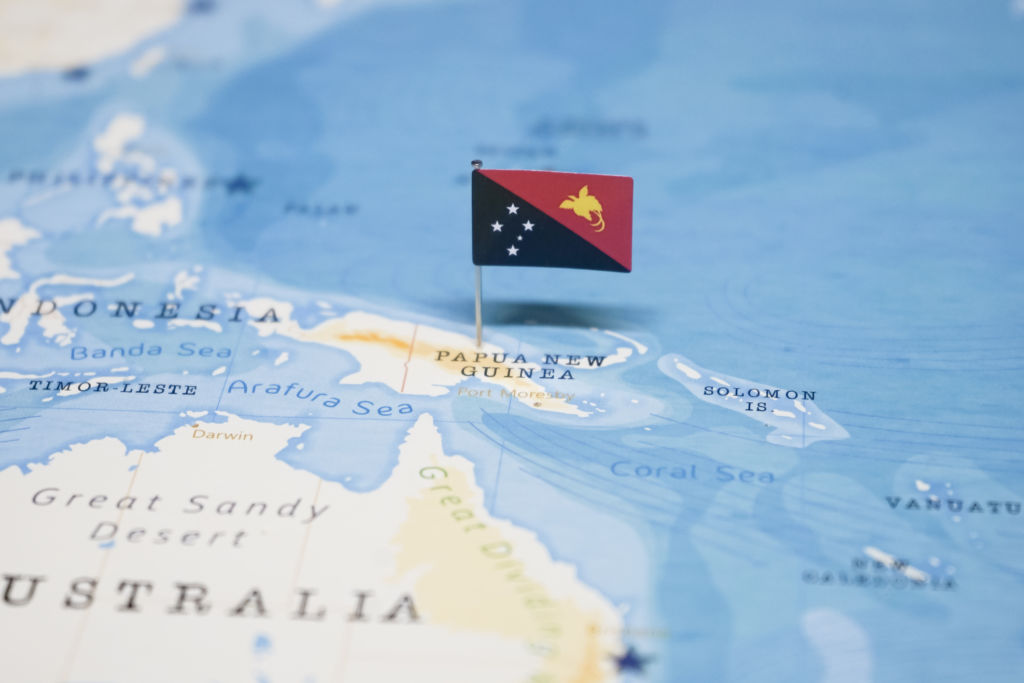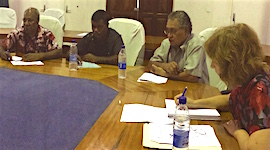
Photo by Erica Leong on Unsplash
Government health ministries in low- and middle-income countries (LMICs) have historically struggled to adequately fund healthcare services for their citizens. But as these countries transition away from donor funding over the next two decades, many will need to find new domestic revenue streams to finance these services. A new WDI white paper explores the impact of raising additional government revenue through increased tax rates on “bads,” such as tobacco, alcohol and sugary drinks.
The paper, “Revenue Estimates from Taxing ‘Bads’ in 16 Low- and Middle-Income Countries,” estimates the additional revenue generated in 2016 had higher excise tax rates been imposed on tobacco, alcohol and sugary drinks and then compares this revenue to select national economic indicators. The analysis included 16 low- and middle-income countries: Côte d’Ivoire, Democratic Republic of the Congo, Ethiopia, Haiti, India, Lao People’s Democratic Republic, Moldova, Myanmar, Niger, Papua New Guinea, Rwanda, Senegal, Sierra Leone, Tajikistan, Tanzania and Togo.

Ben Davis
“The key finding is that increased excise tax rates that result in only a modest increase in retail price can still generate an important amount of additional revenue relative to current health expenditure,” said Ben Davis, a research manager with WDI’s Healthcare sector. Davis wrote the paper with Pascale Leroueil, vice president of WDI’s Healthcare sector, and William Savedoff, senior fellow at the Center for Global Development.
The simulations showed that in 14 of the 16 countries, a tax increasing retail price by 17% could generate additional revenue that is more than 50% of the amount these governments currently spend from their own budgets on healthcare. For 7 of the 16 countries, additional revenue is more than 100% of that amount.
Davis emphasized that the study has limitations. For example, estimates do not account for income and cross-substitution effects (or when consumers switch to cheaper alternatives when a product’s price rises), and they are not adjusted based on historical experience in raising tax revenues.
While the results of the current study are broadly aligned with those recently produced by the Bloomberg Philanthropies’ Task Force on Fiscal Policy for Health, there is a slight difference in methodology. The method used by Davis and his fellow authors allowed them to incorporate several different data sources and calculation methods in the final revenue estimates. Input data were obtained from public databases, journal articles, and LMIC government websites and then used in either a “bottom up” or a “top down” calculation. The “Bottom up” calculation begins with data showing how often individuals consume tobacco, alcohol and sugary drinks while the “top down” calculation begins with the amount of money actually collected by LMIC governments that taxed these products.
Davis said these estimates could act as a starting point for a discussion between global donor organizations and country governments. “A government stakeholder might say, ‘These results are interesting. An increased excise tax on these products might be worth considering. Let’s do a deeper analysis to make sure these numbers reflect reality when we take into account all of the factors that couldn’t be captured in the initial study.’”
“This paper is a small part of a larger conversation about domestic revenue mobilization and healthcare financing in low- and middle-income countries,” Davis said. “It is a building block.”
This white paper is a modest contribution to the existing body of knowledge on potential revenue benefits from taxation of “bads” in low- and middle-income countries (LMICs). We seek to provide orders-of-magnitude responses to the questions, “For 16 LMICs, what amount of additional government revenue could have been generated in 2016 if higher excise tax rates had been imposed on tobacco, alcohol, and sugar-sweetened beverages?”, and “How does this additional government revenue compare to select national economic indicators?”.
For the past three years, WDI has been working in partnership with the Center for Private Enterprise (CIPE) to develop curriculum and instructional materials to be introduced at universities in Papua New Guinea. Initially, the project supported three PNG universities; a fourth was added in 2018 — the Institute of Business Studies University (IBSU). WDI Faculty Affiliate Julie Felker took her fifth visit to Port Moresby in November 2019 to run a workshop on entrepreneurship and advise the four universities on next steps in their entrepreneurship course development.

When leaders at Pacific Adventist University (PAU), based in Papua New Guinea, wanted to add more entrepreneurship undergraduate courses last year, it turned to WDI’s Education team and its Entrepreneurship Development Center for help developing and evaluating the new curriculum. A month ago, PAU debuted its new double major in accounting and entrepreneurship.
Twenty-six students have enrolled in the first course – Principles of Entrepreneurship. PAU also is offering an entrepreneurship diploma program at its affiliate campus, Sonoma Adventist College, and has 20 students enrolled in the first course. The course is a mix of online learning and on-campus instruction.
WDI Faculty Affiliate Julie Felker has worked with the school from the start, suggesting course offerings and providing feedback to faculty, which developed the curriculum drafts. She said the PAU faculty and administration should be lauded for their efforts.
“PAU far exceeded expectations in getting not one, but two entrepreneurship degree programs off the ground,” she said. “They really should be commended for their dedication and hard work in seeing this initiative through. (Business School) Dean Khin Maung Kyi and the faculty were personally committed to the project, and that’s why it succeeded.”

Since 2016, WDI has been supporting the Center for International Private Enterprise (CIPE) to build capacity in entrepreneurship education at PAU and other universities in Papua New Guinea (PNG).
A long-term goal of the work in PNG is to help the country grow its small- and medium-sized business sector and diversify the economy away from reliance on mineral resources. WDI and CIPE, through its work, want to change the mindset of business school students who usually find public service jobs or traditional professions. Instead, educators want students to cultivate an entrepreneurial mindset in which they are employers, not employees, Felker said.
“In partnership with the William Davidson Institute, CIPE’s work to create and improve entrepreneurship curricula in PNG universities has made significant contributions in paving entrepreneurship as a viable career path to young Papua New Guineans,” said Sarah Yun, a program officer for Asia and The Pacific for CIPE. “WDI’s expertise in entrepreneurship pedagogy has been invaluable throughout this journey.”
Felker is scheduled to make two consulting trips to PNG in the near future. This summer, she will deliver a training program related to entrepreneurship to faculty and administrators at PAU and three other universities also working with CIPE and WDI. The training topic will be determined after consulting with the four universities to assess their needs and interests.
WDI’s Education Initiative collaborated with a university in Papua New Guinea (PNG) to develop a curriculum for a new MBA-level specialization in entrepreneurship, one of three schools the Institute has worked with in the country on building new business courses.
The administration at Divine Word University (DWU) recently approved the new Entrepreneurship Specialization for the MBA program. WDI Faculty Affiliates Julie Felker and Peter Scott worked with the dean of DWU’s business school, Prof. Venkata Rao Devaraju, on developing the program.

The project was in partnership with the Center for International Private Enterprise (CIPE) and was originally designed to work with some PNG universities to develop a one-week module on entrepreneurship.
Initially, DWU was interested in only developing an entrepreneurship module, but its leadership changed their minds in early 2017. Felker and Scott soon began working with Rao on curriculum development, advising him on how to strengthen the coursework through adding elements, removing redundancies across classes, and providing teaching and learning resources for him to consider. In May 2017, Felker returned to PNG and worked directly with Rao to finalize the curriculum, develop learning goals, fill out course content and consider textbooks to use.
DWU’s MBA is comprised of eight required courses with four electives that make up a specialization. The specialization in entrepreneurship will be the third at DWU, complementing two existing streams in management, and accounting and finance. The four courses in the Entrepreneurship Specialization are comprised of 10 modules covered over two and a half days. The courses are: Theory and Practice of Entrepreneurship; Small Business Management; Creativity & Innovation and Design Thinking for Entrepreneurs; and, Project Management and Feasibility Analysis.
Felker said working with Rao on developing curriculum was very efficient because he was the direct liaison with DWU leadership. He kept her informed throughout the development process about the University’s commitment and support for the MBA specialization.
“It was fantastic news to learn that the MBA specialization was approved by the University’s leaders, realizing the positive impact it will have on students’ and ultimately the region,” Felker said.
 Just like DWU, Pacific Adventist University (PAU), also based in New Guinea, had bigger ideas for its entrepreneurship programs and partnered with WDI. The school conducted a review and revision of its entire undergraduate curriculum, and was interested in adding more entrepreneurship coursework. Leaders eventually added a double major in Accounting and Entrepreneurship.
Just like DWU, Pacific Adventist University (PAU), also based in New Guinea, had bigger ideas for its entrepreneurship programs and partnered with WDI. The school conducted a review and revision of its entire undergraduate curriculum, and was interested in adding more entrepreneurship coursework. Leaders eventually added a double major in Accounting and Entrepreneurship.
Felker suggested the courses to be offered in the Entrepreneurship major, and the faculty then worked from there, making revisions after consultation with internal and external stakeholders.
“I was basically an external evaluator in the curriculum review process so I had a great deal of opportunity to provide feedback, which they thoughtfully considered, and most often incorporated in their curriculum drafts,” Felker said.
The PNG project is one of many entrepreneurship development programs that WDI has spearheaded over the past 12 years. Other recent projects have included training more than 300 women entrepreneurs from throughout Rwanda, and providing a consulting team to help an entrepreneurship service center in Kosovo better serve local entrepreneurs.
In 2016, WDI collaborated with CIPE on a mentorship training project in Bahrain.
“I am so pleased that these universities will now be offering new courses and specializations in entrepreneurship after working closely with WDI’s Entrepreneurship Development Center faculty affiliates,” Amy Gillett, vice president of WDI’s Education Initiative. “Ultimately, the economy in Papua New Guinea will benefit as the graduates of these programs go on to start companies or to energize existing companies with entrepreneurial thinking.”
Gillett said WDI looks forward to working with additional universities in the future on helping them build entrepreneurship curriculum.
“Spreading new tools and techniques around entrepreneurship pedagogy is a large part of our work in at WDI’s in-house Entrepreneurship Development Center,” she said.
WDI’s Education Initiative will develop a new entrepreneurship curriculum for select universities in Papua New Guinea (PNG) and help faculty members deliver the new instruction to students. The longer-term goal of the project is helping the country nurture its small- and medium-sized business sector and diversify its economy away from reliance on mineral resources.

The project, which represents the first time the WDI Education Initiative has worked in the country, aims to change the mindset of business school students who typically enter public service jobs or work in traditional professions after graduation, such as accounting. WDI Faculty Affiliate Julie Felker, who recently spent a week in PNG for the project, said college students there need to consider a future “where they are employers, not employees.”
Last month Felker, a professor of human resource management at the Zagreb School of Economics and Management, traveled to PNG and met with more than 80 faculty, administrators and students from three universities – University of Papua New Guinea, Pacific Adventist University (PAU) and Divine Word University. Felker also met with some university alumni who went on to become entrepreneurs in New Guinea, and audited two classes at PAU to observe the teaching and learning environment.
“The main purpose of my visit was to understand the faculty’s needs related to an entrepreneurship curriculum, and how students can be best served through entrepreneurship education at PNG universities,” Felker said. “The discussions across all academic units at all three universities were met with sincere enthusiasm and a strong desire to strengthen entrepreneurship education and provide access to students.”
After her visit, Felker summarized her findings on the current status of entrepreneurship education at the universities, as well as the schools’ priorities in the context of local economic conditions. She shared those with fellow WDI Faculty Affiliate Peter Scott, and the two met with WDI Vice President of the Education Initiative Amy Gillett to brainstorm ideas.
The three examined current entrepreneurship courses the universities offer, formed recommendations on how to strengthen them, and provided suggestions on textbooks, cases and other teaching and learning materials.
In December, Scott is scheduled to travel to PNG to deliver a four-day “train-the-teacher” workshop for 35-40 faculty members and administrators that demonstrates how to integrate and teach entrepreneurship in their respective curricula – law, science and the humanities, among others. After the workshop, Scott will get feedback from the participants and make any necessary revisions to the curriculum. A final version will be sent to the universities.
Gillett said the institute is “excited to bring its field-tested entrepreneurship education training curriculum to PNG and to shape this content to meet the needs of the local system.
“This project will help ensure that the country’s university students learn the principles and practices of entrepreneurship and will be well equipped to start sustainable businesses,” she said. “These businesses will fuel economic growth in Papua New Guinea.”
The project is sponsored by the Center for International Private Enterprise (CIPE). WDI collaborated with CIPE on a mentorship training project in Bahrain earlier this year.
The PNG project is one of many entrepreneurship development programs that WDI has spearheaded over the past 12 years. Other recent projects have included training more than 300 women entrepreneurs from throughout Rwanda, and providing a consulting team to help an entrepreneurship service center in Kosovo better serve local entrepreneurs.
“Entrepreneurship development support is a key way that WDI can help advance economies in emerging markets,” Gillett said.